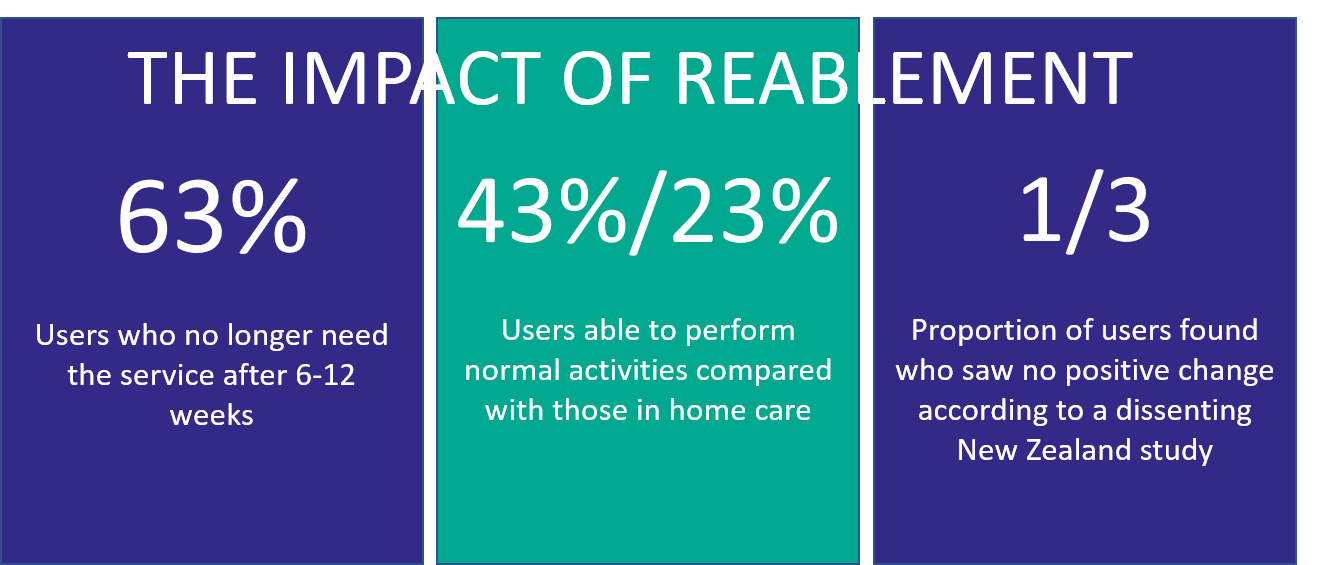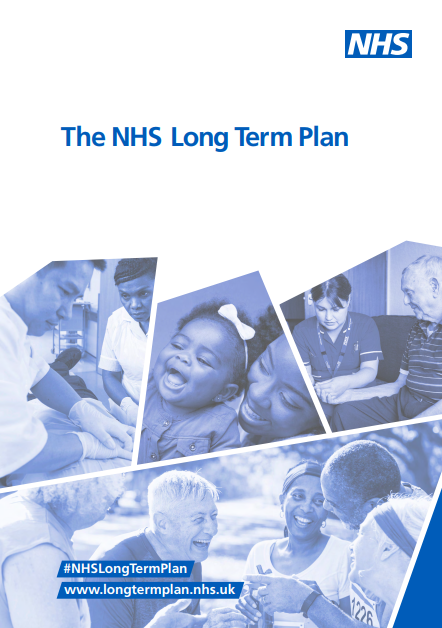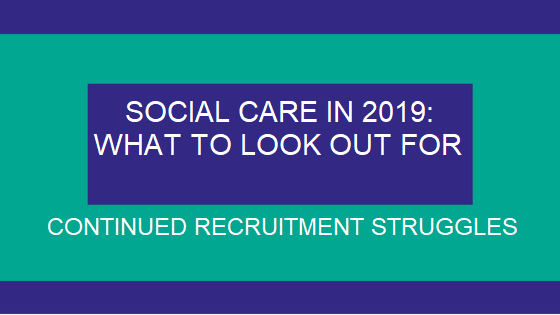Here you can read updates and insights from Advantage Accreditation. Our posts feature a range of topics, relevant to industries from health and social care to construction, to hospitality. Browse our recent posts below, and see our Resources for more information.
Introducing Liberty Protection Safeguards
As of 1st April 2022, new Liberty Protection Safeguards (LPS) will be in force.
Many people in the UK who lack the mental capacity to consent to care experience deprivation of liberty. This enables care for those with dementia, autism, learning disabilities, etc.

Significant court cases were a major factor in changing the Deprivation of Liberty Safeguards (DoLS) to the Liberty Protection Safeguards (LPS). The supreme court ruled that many people were deprived of their liberty unlawfully. Among its rulings, the court provided an official definition of deprivation of liberty:
"continuous supervision and control ... not free to leave"
Read more about these court cases and the judgement of the supreme court in our Introducing LPS resource.

A huge number of changes will take place this April. For example, the safeguards will apply to people aged 16+ rather than 18+, and there will be a whole new role: Approved Mental Capacity Professionals (AMCPs). You can read more about the differences between DoLS and LPS, and find out what the AMCP role involves in our Introducing LPS resource.
Perhaps the most significant change is the streamlined, three-part assessment process.
- Capacity Assessment
Is the individual capable of consenting to care arrangements? - Medical Assessment
Does the individual have a mental disorder? - Necessary and Proportionate Assessment
Are the arrangements necessary to prevent harm to the individual?
Are the arrangements proportionate to the likelihood and seriousness of the risk of harm to the person?

If you're looking to provide LPS training, consider:
- Which members of staff will take on which responsibilities?
- Should depth of training be based on role and duties?
- Should all staff receive the same training?
- How will LPS affect the day-to-day activities of the organisation?
- How will staff prepare for the transition to LPS?
- What training do new AMCPs require?

At Advantage Accreditation, we can help you with:
Experience
We are an accreditation body with a wealth of experience in health and social care.
Educational Resources
Our Mental Capacity training course has been updated to include LPS regulations and guidelines.
Quality Assurance
If you already have a Mental Capacity training course, we will assess the quality of your learning materials. This includes checking the validity of information, its impact on learners, and how it is presented.
Accreditation
Our seal of approval allows you to become a credible, recognised training provider. You can download certificate featuring our logo and keep a record of training through our online portal.
Train the Trainer
With our train the trainer courses, your staff can become licensed trainers for specific subjects.
Find out more about LPS
Get your training reviewed and accredited
UK care homes tap into ’boutique vibe’ to fill empty beds
The new wave of niche care homes which are capturing the fast-growing market.
With demand for care beds expected to soar in the next 30 years, new opportunities have arisen for small unique, boutique care homes that could transform the care home sector.
 Source: https://www.which.co.uk/news/2017/10/care-home-provision-to-hit-crisis-levels-in-next-five-years/
Source: https://www.which.co.uk/news/2017/10/care-home-provision-to-hit-crisis-levels-in-next-five-years/
One such care home in Banstead, Surrey, is the Royal Alfred Seafarers’ society; these nautically themed rooms add to the maritime vibe of the home. ‘there is a lot of memorabilia of shipping; there’s model ships, sextants and pictures of ships,” said John Conacher, 85, a former seafarer. Another resident remarked that her favourite thing was the knowledge that she is mixing with people of the same background.
The last year has been though for independent small and medium-size care providers with some experts suggesting that 6500 could close within the next five years; this accounts for more than 80% of the UK’s care home market.
For the keen agriculturalist there is the Gardeners’ Royal Benevolent Society who offer bungalows with luscious gardens and the opportunity to leave in a community of retired horticulturalists.
At advantage, we offer training courses in Mental Health, Promoting Dignity in Care and End of Life Care as well as many more. These courses are mapped in-line with professional standards bodies such as the CQC and learning development standards such as Skills for Care.
These courses give health and social care providers the ability to conduct their care in a person-centred approach to provide high quality care standards for the people they support.
Get your training reviewed and accredited
How to get an outstanding CQC rating
For many providers, reaching an ‘outstanding’ rating with the Care Quality Commission (CQC) can seem like a difficult task. For others, it’s an ambition that is at the centre of their mission.
Of course, achieving ‘outstanding’ is meant to be difficult. Only 2% of inspected social care services achieved the rating in 2018, a statistic that has remained largely static since 2014. More domiciliary care services rank outstanding compared to residential services, and similarly nearly five times as many residential settings are rating as ‘inadequate’ as domiciliary services. This speaks to the different challenges between the two types of service provision.
Below are some tips that may help you if your ambition is to be outstanding. It may not surprise you that planning is key.
Planning and Preparation

As with anything, the key to a great CQC inspection is plenty of planning and preparation. There should be no surprises when the inspector calls: all the standards they measure you against are available for free online.
Firstly, you should be aware of what type of inspection you are due to receive. There are three types:
- Comprehensive inspection – A holistic inspection usually carried out where there is a risk of a deterioration in quality or an upturn in quality that may affect your rating.
- Focused inspection – More structured, narrow inspections carried out in response to a complaint or to follow up on specific findings from a previous inspection. These are usually unannounced.
- Combined inspection – Where the organisation provides services that span different areas of health and social care, for example, “mental health, community health, and care homes”. Different inspections are carried out by specialists for each service area.
If you know what type of inspection you are likely to receive, you will be able to plan more effectively. Focused inspections are the simplest to plan for, since you will likely already be aware of the issue to which they are responding. Comprehensive inspections require much more planning and work. All inspections will emphasise your equality and diversity credentials – such as providing reasonable adjustments – and your compliance with the Mental Capacity Act and Deprivation of Liberties Safeguards.
Fortunately, the CQC’s criteria is public and open for all. Here’s two of the key documents you should be aware of:
Assessment Methodology
The CQC document ‘How we regulate health and social care’ should be your first port of call when planning for an inspection. The document summarises how the CQC inspects. It also includes the appeals and complaints procedures should the inspection not go the way you hoped. The document signposts you to other documents that will be of help.
Assessment Framework – the Key Lines of Enquiry (KLOEs)
The KLOEs are the primary questions any CQC inspector will ask as part of their visit. There are five key areas of focus:
- Are service users safe from abuse and harm?
- Is the care delivered effective? Does it lead to good outcomes?
- Are staff caring and compassionate towards those in their care?
- Are services responsive to the needs of service users?
- Is the organisation well-led? Are there effective governance arrangements in place?
Beneath these areas of focus are a series of questions that the inspector will ask. They will, of course, need evidence to support any answers you provide. The CQC KLOEs documentation also gives an explanation as to what providers must do to get an outstanding rating for each question. It is important to compare your service against these criteria. This will give you an indication as to where you are likely to fall in your inspection.
The KLOEs underwent some changes in November 2017. Advantage have a guide to the updates available to download for free.
CQC reports online
As since the CQC is a public regulator, all its reports are available online. Reading the reports of ‘outstanding’ services will give you a good indication of what inspectors are looking for when they visit. Conversely, reading reports of ‘good’ services will give you an idea of the gap between these ratings and ‘outstanding’ and what you need to correct. All inspection reports can be found on the CQC website alongside the details of the different providers.
You will notice in some reports that there are specific mentions of instances where the inspector believes the organisation is exceptional or innovative. If you have developed a particular procedure or use a piece of technology that you believe will differentiate yourself from other providers, make sure you highlight it on your inspection.
Aim for two questions to be outstanding
Not many know that, of the five key questions asked by the CQC, only two need to be outstanding for you to get an overall outstanding rating. Although you need to need to deliver as best as you possibly can in all five areas, you will likely already be relatively strong in at least two areas compared to others.
If that is the case, you should build on your strengths. You should understand why you are so strong in these areas and focus on them. It is easier to concentrate your efforts and to make a real impact with staff on a limited number of areas, rather than spread your resources too thinly.
Use an evidence file

It is not enough for you to answer questions well. Inspectors need evidence. Nor should you rely on the inspectors being able to find good or outstanding practice. You need to be proactive. You should maintain an evidence file that you are constantly updating, preferably something that the inspector will be able to take away with them. This may include documents such as:
- Your policies and procedures
- Organisation chart
- Minutes of senior management meetings and meetings with outside agencies
- Records of any incident investigations, including the outcomes, or any meetings where safeguarding issues are discussed
- DBS records for staff
- Health and safety and fire risk assessments
- Training needs analyses and evidence of staff training
- Legionella test records
- Equipment maintenance records, including PAT tests
- Compliance with data protection requests
If you are consistently updating this file – best categorised as per the KLOEs – then will be fully prepared when an inspection occurs.
This file is not just about ticking boxes, though. You should record examples of where you feel your organisation has developed practices or delivered care that are innovative or particularly exceptional. You should also record examples of good team work, where your staff have gone above and beyond, or great feedback from service users and/or their families. If you have had any requests for information from the CQC, such as online provider information collection (PIC) or provider information return (PIR) requests, keep records of what the request was and your response.
Surveys and feedback

The best evidence that you are delivering excellent care is feedback from the people in your care and their families. Of course, you can obtain this through individual requests, and it may be a good idea for you as a manager to get out and talk to the people in your care or their families.
If time is a factor, though, a survey – paper or digital – can help. Any survey must strike a balance between hitting some of the key criteria required by the CQC, and ensuring it is not too long and foreboding for someone to complete. Do not be tempted, however, to throw out any survey results that criticise your services. Negative feedback collected in these surveys is, in fact, hugely beneficial for two main reasons:
- It validates the survey and all the other responses by showing that the results are genuine and unfiltered
- It provides an opportunity for you to demonstrate to the inspector that you have acted on people’s concerns
It is best, if you can, to collect feedback consistently over a long period of time. This will help give you a more accurate picture of how your organisation is functioning and take account of changes in staff and service users.
For those seeking to use digital surveys, there are a range of online providers. SurveyMonkey is one of the most popular and has a free option.
Carry out mock inspections
CQC inspectors will not just interview you. They will also interview your staff to ensure they are aware of your organisation’s policies and procedures and of their responsibilities as carers. Carrying out mock inspections will get them used to questioning and help you identify where there are gaps in staff knowledge. It will build confidence, meaning that you and your staff will be able to talk about how great your services are with more authenticity.
You should not, though, prepare a ‘script’ for your staff. CQC inspectors will be able to see through it. It will also have long-term negative consequences, creating a culture of mistrust in your organisation. If your organisation is well-led and has a mission to deliver excellent care, you should largely be able to trust your staff to show off how good you are.
Again, staff surveys will help you an insight into carers’ awareness of their responsibilities and how they feel about your organisation. A people-oriented organisation will regularly solicit staff feedback to help improve its services.
You can carry out the inspections yourself, have a senior member of staff do it, or procure outside help. There are now a number of organisations that can carry out mock audits and inspections. Get in touch with us to find out who we recommend.
Ensure all staff training is up to date
Staff training is one of the easiest things to fall short on. All your care staff should be up to date on their mandatory training, including health and safety training, fire training, and all the mandatory care subjects. You must ensure that records are kept of all the training, including copies of the certificates.
Innovative care organisations will look beyond the bare minimum, of course. Outstanding providers will have development plans for members of staff. This will not just help the CQC inspection but also improve staff retention and morale. They will also be able to demonstrate an ongoing system of staff training that highlights when a training need is likely to emerge. Advantage centres use our accreditation portal to help keep track of training needs and records.
Getting your training or training systems accredited demonstrates a commitment to quality, consistent training. Click here to find out how Advantage Accreditation may be able to help you with this.
Be aware of limiters
Even if you perform well against the ‘well-led’ KLOE, you may be unable to reach an outstanding rating under certain circumstances. These ‘limiters’ are:
- If the setting has no registered manager when it should have, or if there have been insufficient attempts to hire one
- There is another condition of registration that has not been met
- You did not alert the statutory authorities about a relevant event
- The provider has not completed a PIC request
You should also be aware that, in some cases, the CQC will not be able to give a rating. This is only likely if it is a brand new organisation, if there has been a significant change in operations or ownership, or if there isn’t enough evidence.
Now for the inspection …
Provided you have done your preparation and planning, the inspection itself will go a lot smoother. Here’s some tips though that may help you:
- Shout about your successes – act as if the inspector is a potential client
- Smile, and get your staff to smile too
- Highlight anything you do that is innovative to stand out from other settings
- Don’t lie and don’t be afraid to say if you don’t know the answer – trying to cover your tracks will only come back to bite you later
If you are a truly outstanding organisation, then you won’t need any tricks or shine. Hopefully this guide will help you put a plan in place to ensure that your greatness really shines through!
If you need any more advice, get in touch with the Advantage Accreditation team.
Social Care Trends in 2019: Continued Recruitment Struggles
Recruitment has always been an issue for the care sector and it is likely to endure. The sector forecasts a shortage of 350,000 workers by 2028 assuming no significant changes are made. In reality, slow but steady technology improvements, provided the funding emerges, will chip away at this number. In the short-medium term, though, it will continue to be a problem.
It isn’t hard to detect the sources of the problem. Social care is mostly hard, unglamorous work for relatively poor pay, similar to other sectors such as hospitality. One think tank estimated that as many as half of the social care workforce may be being paid below the real living wage. In an era where young people are constantly comparing and contrasting each other’s lives using social media, spending your days caring for older people is unattractive. Even the potential for quick promotion due to the talent shortage is not enough to counter-balance this fact.
With funding pressures unlikely to be quickly alleviated, wages in the sector are unlikely to increase. The only structural factors that may have a positive effect on recruitment in the sector, ironically, would be an economic recession, releasing excess labour into the market. Unless there is significant economic pain following Brexit, this also seems remote. The job market, despite the problems in retail, has performed well in recent years. Brexit, depending on what deal is reached, may also reduce the ability of providers to source carers from EU states.
Larger care providers, of course, have the resources and freedom to be able to innovate with their recruitment. One provider is planning make more use of social media and capitalising on the real experiences of carers to spread its message. Skills for Care has been discussing the possibility of creating a clearer career pathway for carers, although this feels unlikely to seriously shift perceptions. For smaller providers, it looks like the challenge is going to remain.
Social Care Trends for 2019: More Focus on Loneliness
2018, as well as an increased emphasis on mental health across all ages, saw numerous campaigns on loneliness among Britain’s older population (and to a lesser extent, in its young people too). Many of those older people who are lonely, of course, are not the types to be on social media campaigning themselves. Change has to come from specialist groups and volunteers.
Loneliness is a real problem. Age UK estimates an incredible 3.6 million older adults live alone, 2 million of which are over 75. They claim that this loneliness can be as damaging to their health as smoking 15 cigarettes a day and more harmful than obesity. The implication is a simple one: if we can put so much resources and attention on reducing smoking and obesity, why can we not do the same to combat loneliness?
It does not take a big leap to see how this impacts on social care. Lonelier adults are more likely to have poor health outcomes and to see their physical and mental condition decline, pushing them into social care. Creating a more social environment for these people would therefore have a big preventative effect, potentially reducing the burden on the health and social care system.
What can the sector and the government do about this? At the moment, the social care sector has no incentive to tackle loneliness. Its funding is based on those it helps, not on those it keeps out. The government is likely to support volunteer projects led by groups such as Age UK with grant funding and possibly facility access. Either way, expect more pressure from the third sector on the issue.
Restraint Reduction Network: Advantage pledges its support
Advantage Accreditation is delighted to announce its support for the Restraint Reduction Network. We have taken the “pledge” to help advance best practices and improve outcomes for those subject to restraint in health and social care environments.
The Restraint Reduction Network states that its mission is to:
“… reduce reliance on restrictive practices and make a real difference in the lives of people who use across education, health and social care services.
We achieve this mission by sharing learning and developing quality standards and practical tools that support reduction. Our aim is to share learning and facilitate best practice and access to guidance that supports the minimisation of all restrictive and coercive practices:
Manual: Physical Restraint, Clinical Holding, Mechanical Restraint
Chemical: As Required Medication, Coerced Medication, Rapid Tranquillisation
Environmental: Low Stimulus or Segregation Area, Seclusion, Secure/Locked Facility
Psychosocial: Time Out, Restricted Leisure, Social or Occupational Activities, Electronic Tagging
Our work is steered by a cross sector Steering group that includes representation from experts by experience relevant professional bodies, regulators and government departments (and is chaired by Professor Joy Duxbury).”
Reablement: a brief introduction
Reablement is becoming an increasingly hot topic in the health and social care sector. As budgets continue to come under pressure, reablement offers a way to reduce costs for councils whilst maintaining peoples’ independence.
In 2018, we released an ebook that covered the basics of reablement. We have now produced this in a blog format so that you can easily find out the information you need on this topic. You can still download our PDF ebook for free, though, if you prefer.
What is reablement?
Sometimes, when people experience a sudden deterioration in their health or physical condition, they need help to adapt so that they are able to maintain independence and live full lives. This help, usually short and intensive, is called reablement.
Reablement is becoming increasingly important for people and for society overall. As health and social care costs increase, the focus for services is to encourage people to live independently in their own homes for as long as possible. Technically speaking, reablement is a form of ‘intermediate care’, which is a type of short-term support from health and social care services. Intermediate care as a whole is designed to encourage independence and prevent unnecessary hospital or care services admissions.
The remaining three types of intermediate care are:
- Crisis response – By definition, an assessment and short-term care that typically lasts 48 hours or less, and is designed to prevent a trip to hospital or a care facility.
- Home-based intermediate care – Services provided in a person’s own home or in their care home.
- Bed-based intermediate care – Services delivered in a hospital or care home.
Who can receive reablement?
Reablement is designed for people who have had a sudden change in their physical condition. They may have become disabled, suddenly frail from an illness, or they may be recovering from an accident. Reablement helps them perform normal, daily activities that we may take for granted, such as getting around the house, washing themselves or cooking. This may mean helping them adapt to their new physical condition and state of health, or relearning skills.Who exactly is eligible for reablement depends on the local authority.
Since one of the aims of reablement is to reduce costs to local services, resources tend to be targeted at people who are most likely to benefit physically from reablement. This means that individuals with severe mental illnesses, degenerative diseases, or who are receiving end of life care, are less likely to receive support. GPs or other health services can also refer people for reablement services.
Benefits of reablement
Many people benefit from reablement: the people using the service, their families, and their wider community.
The Social Care Institute for Excellence (SCIE) claims that reablement is typically welcomed by people receiving support, and they experience greater health and social care outcomes compared with those using home care. Their quality of life tends to be better, and their physical condition is more likely to improve.
Although we tend to talk of independence in terms of its benefit to local services, there is also the underestimated impact on the individual. Many people don’t like asking for help, and transitioning from being independent adults to being at least partly dependent on carers or family can be incredibly difficult.
Reablement allows these people to retain their pride and dignity. This means that their personal relationships are likely to be stronger. Although many families help members who are struggling physically, it can sometimes place strain on their relationships. Maintaining a person’s independence helps them, in turn, maintain strong relationship with their family, their friends and their local community. This prevents social isolation and loneliness.
The reablement process
- Assessment: Reablement starts with an assessment, usually by a healthcare professional, of whether a person may benefit from it. The assessment will take into account factors such as the person’s mobility, what skills they still have, their physical strength, and their ability to perform basic tasks such as cooking and washing.
- Frequent, longer visits: The purpose of reablement is to help a person very quickly become independent once again. This means that reablement workers may make frequent visits, but it also means they are less likely to intervene in the performance of tasks than a traditional care worker. They are more likely to observe and encourage, only taking over or helping directly when necessary. These visits are therefore likely to be longer than normal care visits. Workers may be specifically trained in reablement, but they may also be physiotherapists or occupational therapists.
- More assessments: Reablement workers aim to help a person regain their independence as quickly as possible. They will assess often to determine when the person no longer needs support.
- Adjustments or Equipment: The reablement workers, or an occupational therapist, may recommend that adjustments be made to a person’s home or that assistive aids be introduced to help them remain independent. Such aids may include a stairlift or support bars in the bathroom.
- Forward Planning: If done properly, the planning for what happens after reablement ends should begin at the very start of the process. This planning will involve healthcare professionals, the reablement workers, the individual receiving support, and any family or friends who may be involved in any ongoing care and treatment.
The impact of reablement

Reablement has been an active policy since 2010. SCIE have reviewed the impact of reablement across numerous independent and official studies and have found that it has had an overall positive effect. They concluded:
- Reablement is becoming a ‘default’ service whenever needs are identified, rather than just being available to those leaving hospital.
- 63% of reablement users no longer need the service after 6-12 weeks.
- People and families appear to have welcomed reablement. People in the study seemed to have been particularly pleased with the speed of the service.
- Reablement is proving likely to be cost-effective by reducing long-term care costs. Although the upfront costs are higher (on average £2000 for reablement compared to £1,392 for 6 weeks of home care), 26% of users had a reduced need for home care hours after going through the process. The overall need for care services is reduced by 60%.
Nevertheless, some issues were noted. Some people felt that they were not given enough assistance with performing domestic tasks at the start of the reablement process. There was also a concern that some of the reablement ‘ethos’ was lost in handovers between service providers.
SCIE have also noted that the skills required for reablement are very different from those required for traditional care work. For example, reablement staff are required to observe and watch rather than directly intervene, a skill that can be difficult for someone used to helping others. There is also a need for “active reassessment” at every session to track progress and identify need. Reablement workers also require more flexible working practices than is typical, since it’s important that the reablement worker(s) visiting the individual remains consistent. Managers and supervisors need to ensure any staff participating in reablement work have the appropriate training.
Perhaps the most interesting point from SCIE’s research summary, though, is that individuals receiving support need to change their expectations and attitudes if reablement is to work properly: “reablement was considered to be more successful if service users were motivated – ‘people have got to want to do it.” The reablement worker could be crucial here as a motivator, and managers and supervisors may wish to ensure reablement workers have positive outlooks themselves.
The remaining questions
Reablement is a relatively new concept in social care and there are still some questions that require more research. The National Institute for Health and Care Excellence (NICE) released a paper in 2017 outlining some of these questions:
- How effective is reablement for people with dementia? Although local authorities are currently less likely to provide reablement services to people with dementia, there is still little evidence or research as to whether those with early stage dementia – or their families or carers – may benefit.
- How effective and cost effective are repeated periods of reablement, and reablement that lasts longer than 6 weeks? Although this document has assumed a single period of reablement, there is no technical limit to how often reablement services may be provided to a person. In practice, reablement is only funded for 6 weeks, even if sometimes it is offered for longer and more frequently. Therefore, there are no studies as to whether these extended periods of support are cost effective or deliver better outcomes for the individual.
Further resources
Social Care Trends for 2019: The Tech Revolution is Cancelled
In our Future of Care Report, we forecast that eventually automation, AI and robotics would help change social care for the better, reducing costs and raising outcomes. Of course, this a long-term trend which is likely to take years.
Health and social care, in particular the NHS, is oddly conservative when it comes to embracing change. In 2018, it transpired that 9 out of 10 hospitals were still reliant on fax machines, a technology most businesses – peculiarly, apart from football clubs – regarded as redundant many years ago. No wonder the government felt obliged to insert into the Care Act 2014 a requirement for health and social care to embrace digital technology.
Anyone who therefore predicts an artificial intelligence or internet-of-things revolution in health and social care in 2019 is therefore not familiar with that fact, nor with the spending pressures within much of the sector. A number of reports have been circulating recently advocated dramatic technological change in the sector. Although these changes reduce costs and improve outcomes in the long-run, they require an initial capital outlay – whether funded from cash, borrowed funds or leased – that all but the biggest providers are simply not capable. Similarly, the introduction of voice recognition and smart home software into older people’s homes may have a very positive impact on their lives, but someone has to pay for it and show them how to use it.
This was, essentially, the conclusion of a 2016 report on IT in the social care sector compiled by the Local Government Association. In it, they made a range of suggestions and recommendations for introducing more technology into the sector to improve financial and care outcomes: remote working for carers, strategic data analysis, greater use of assistive technology, and online portals. The report also highlights some noteworthy examples from councils and other organisations across the country, but some are quite obviously stretching the point. Note, for instance, Rotherham Metropolitan Borough Council’s “holistic” digital strategy, that in reality appears to have little impact on social care. The report’s own conclusion states that “financial challenges experienced by the sector have been significant, with often limited resources available locally to implement many of the solutions highlighted within this paper”. It then quotes the statistic that only “32 per cent of councils strongly agreed that there were adequate resources for technology implementation and change management”.
Digital technology has the potential to have a huge impact on the social care sector, but for now, that impact will be limited to a handful of larger providers. The rest will have to settle for incremental change or their traditional methods.
Click here to read the first installment on our series on funding and the government’s green paper.
Social Care Trends for 2019: Funding and the Green Paper
2019 is likely to see social care funding remain a top issue for British politics. The sector and the public are both awaiting a much delayed green paper on the issue. It’s likely, however, to disappoint more than it will solve.
The government has been talking of reform to social care in England – including its funding – for a number of years. The 2017 general election saw proposals emerge from all sides of the political spectrum. Arguably, the incumbent’s proposals, which would have seen those in homes valued at more than £100,000 liable for their full care costs, cost them a working majority. These plans, dubbed the ‘dementia tax’ by detractors, were quickly reworked, and then completely shelved.
New plans were touted to appear in the summer of 2018 but they have yet to be published. The indications from members of the team drafting the long-awaited green paper have already said that it is unlikely that free personal care would be on the agenda due to the expense. Indeed, most public pronouncements on the paper have focused on managing down expectations, with one already warning that it is likely to “disappoint” those who want more radical change.
One advantage that the government does have, though, should it choose to use it, is that the growing divergence between the different nations of the UK in health and social care. The current devolution settlement means that Wales, Scotland and Northern Ireland have independent health and social care policies. This means there is plenty of scope for experimentation and the devolved nations could be a ready source of knowledge in what works and what doesn’t. Scotland, for instance, is often held up as a model for deeper integration between health services and social care.
Based on the growing pain in the sector, however, and how these proposals tend to take shape, we can predict that the green paper may include the following:
- A commitment to a step-by-step increase in social care funding, although likely to fall well short of the £20 billion promised to the NHS.
- Those who can afford it being liable for certain aspects of their social care, similar to how people pay for prescriptions and eyeware on the NHS.
- More integration between social care and the NHS, possibly using ideas from Scotland such as ‘integration authorities’, joint planning and monitoring committees.
- A focus on preventative measures to keep people out of social care and hospitals, including reablement and home adaptation.
- Whatever the result, it is likely to generate controversy from all corners. Social care funding and reform has been a political hot potato for a number of years, but with care providers failing and budgets falling, the government’s hand is being forced.
Whatever the result, it is likely to generate controversy from all corners. Social care funding and reform has been a political hot potato for a number of years, but with care providers failing and budgets falling, the government’s hand is being forced.
The NHS Long-Term Plan: What it means for training
 The Government published its long-term plan for the NHS this week. We’ve looked at what it means for mandatory, clinical and specialist training for the next decade:
The Government published its long-term plan for the NHS this week. We’ve looked at what it means for mandatory, clinical and specialist training for the next decade:
Focus on mental health
There has been a huge emphasis on mental health in the media and in politics in recent times, and this has carried over into the NHS. Mental health training features on a number of occasions. There is a recognition in the plan that certain groups of young people are particularly vulnerable to mental health issues, and it says that teams will receive “information and training to help
them support young people more likely to face mental health issues – such as Lesbian, Gay, Bisexual, Transgender (LGBT+) individuals or children in care”. The plan recognises that “preventative support” is important to help address problems before they have serious repercussions.
The plan also says that ambulance staff will receive training to help deal with people with mental health issues who are “in a crisis”. Some trusts are already doing this, but growing awareness of the scale of mental health problems in the UK and the impact it has on 999 calls means that all ambulance staff will soon be able to help with issues.
Training to improve end of life care
One of the aims of the plan is to “personalise” and “improve” end of life care. This, it says, will mainly be accomplished by training to help staff identify patients’ needs as they head into the final stages of their life. The plan hopes that this will reduce emergency admissions, but the majority of people will see this as a necessary part of a caring modern society.
There is little new about a wish to improve end of life training. Former guidance has included breaking down training into “bite-sized” sessions to build knowledge quickly, as well as role modelling good practice at every opportunity. It will be interesting to see how this new commitment bears out in practice, and whether it will mean mandatory, classroom-based courses for practitioners.
Learning disabilities and autism awareness
The plan states an intent to roll out training in awareness of learning disabilities and/or autism to NHS teams. The plan alludes to a consultation published in 2018, which says that the aim of the training is ultimately to help staff “support people with a learning disability, their families and carers; to ensure that perceptions of learning disability do not prevent a robust assessment of physical health, and that staff can make personalised, reasonable adjustments to care”. The skills and competencies required for this awareness have already been outlined in the Learning Disabilities Core Skills Education and Training Framework.
If this roll-out follow the recommendations included in the consultation, it means that a further consultation on proposals will begin in March this year, as well as an audit on skills in the NHS workforce. The CQC will monitor the uptake of the training from its full introduction.
Dealing with violence
The long-term plan mentions that a programme has already been launched to train staff in how to handle violence. This may include positive behaviour support, de-escalation training, and breakaway techniques. Its inclusion in the plan emphasises that this is a growing problem and such training is here to stay.
Click here to see what courses Advantage Accreditation can support you to deliver.











